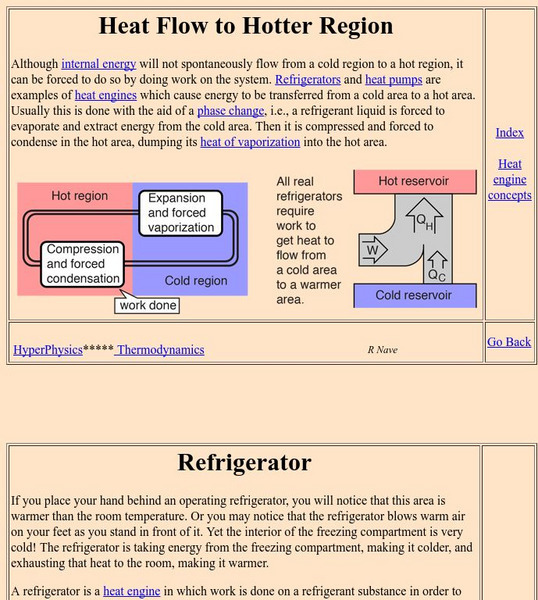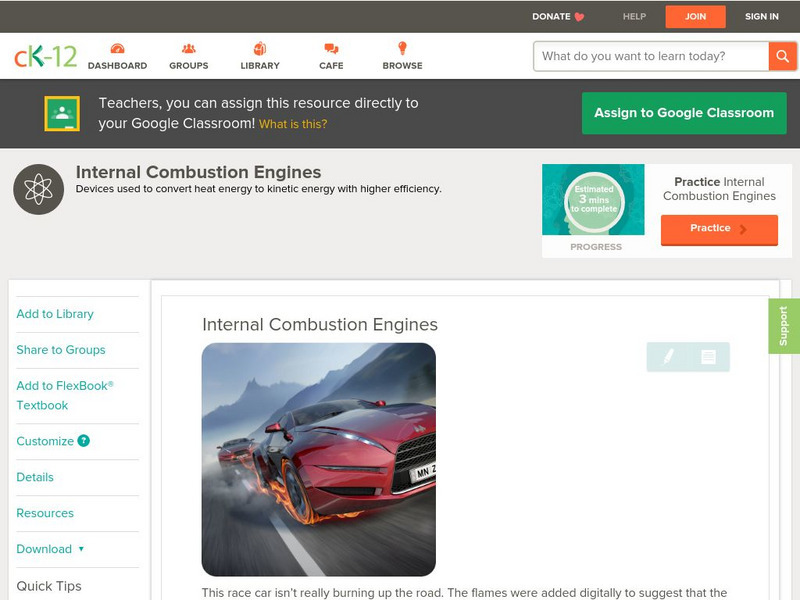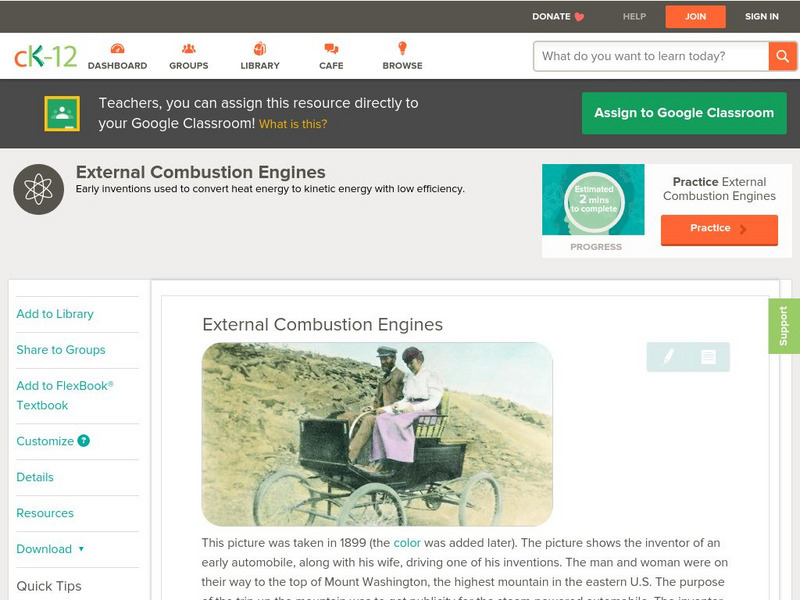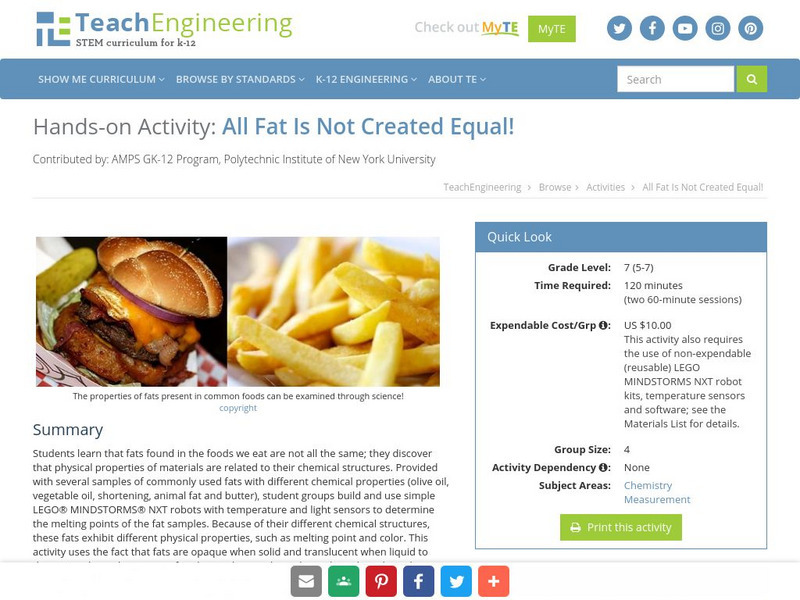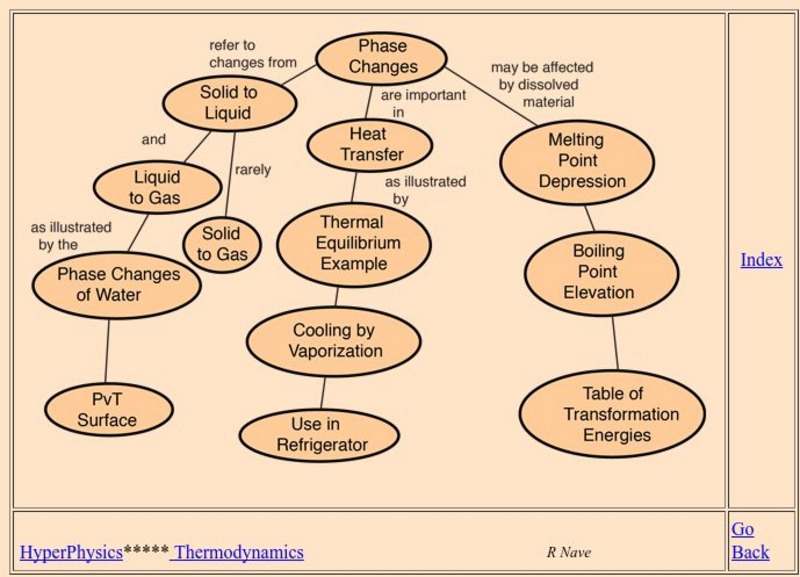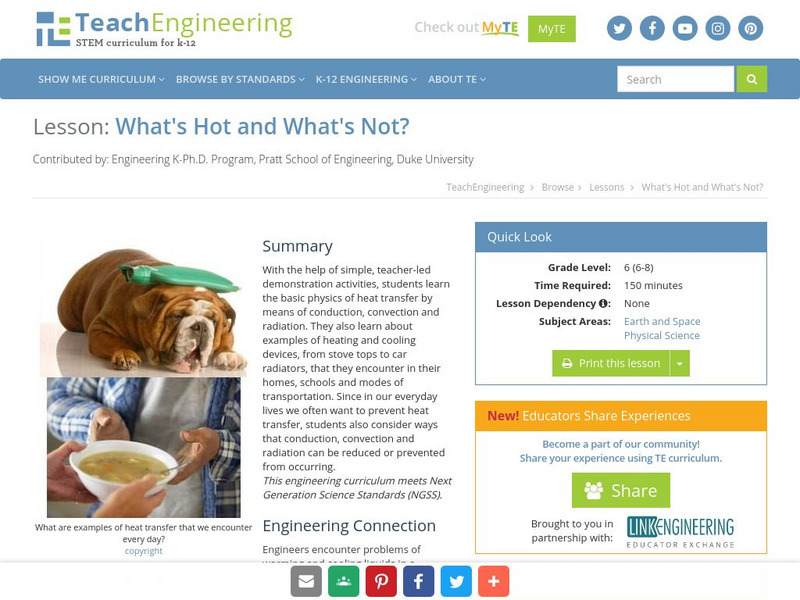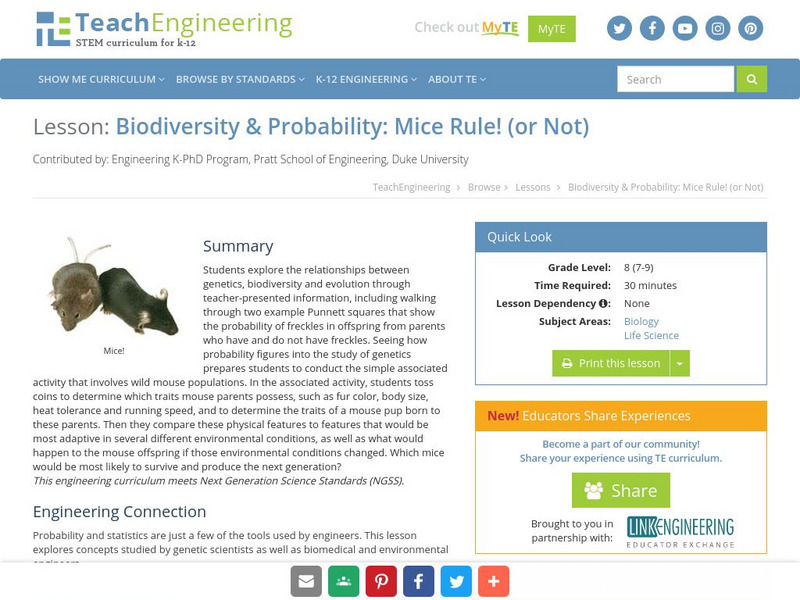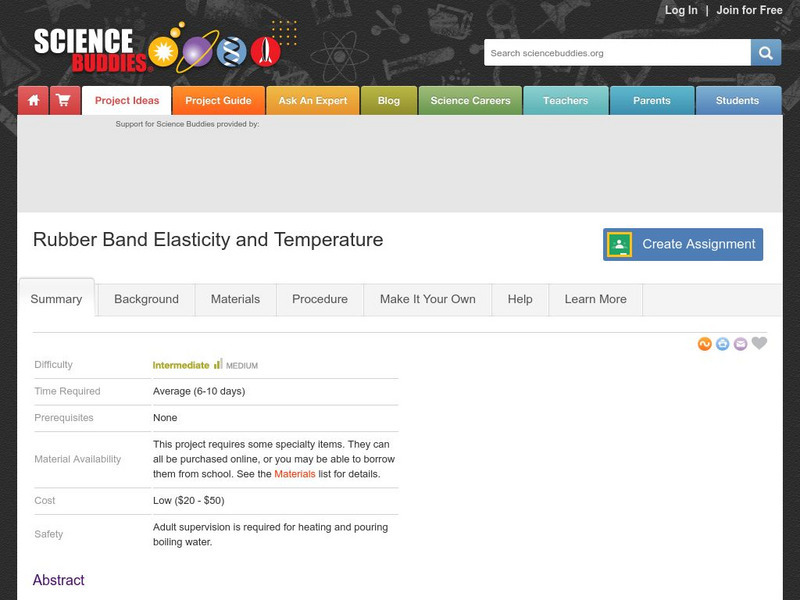Hi, what do you want to do?
Physics Aviary
Physics Aviary: Practice Problems: Efficiency of an Engine
Determine the efficiency of an engine (0 - 1) based on the energy flow that is presented to you.
Georgia State University
Georgia State University: Hyper Physics: Heat and Thermodynamics
Georgia State University Physics Department privides an incredibly thorough treatment of the laws of thermodynamics. Multiple pages; many informative graphics; opportunities to practice problems and receive immediate feedback.
Texas Education Agency
Texas Gateway: Applications of Thermodynamics: Heat Pumps and Refrigerators
By the end of this section, you will be able to describe the use of heat engines in heat pumps and refrigerators, demonstrate how a heat pump works to warm an interior space, explain the differences between heat pumps and refrigerators,...
Georgia State University
Georgia State University: Hyper Physics: Heat Pump
Heat flow from a hot region to a cold region is described and explained. Applications of this phenomenon (specifically heat pumps and refrigerators) are discussed. Excellent graphics.
Georgia State University
Georgia State University: Hyper Physics: Heat of Fusion
The heat of fusion is defined and described. A graphical representation of the heat of vaporization is given. A method for measuring and calculating the heat of fusion is also presented and explained.
Georgia State University
Georgia State University: Hyper Physics: Heat Flow to Hotter Region
Heat flow from a hot region to a cold region is described and explained. Applications of this phenomenon (specifically heat pumps and refrigerators) are discussed. Excellent graphics.
Georgia State University
Georgia State University: Hyper Physics: Law Concepts
This site from Georgia State University Department of Physics and Astronomy is an indexing page for the HyperPhysics site. The page links to a variety of other pages which discuss concepts related to entropy and the second law of...
TeachEngineering
Teach Engineering: Heat Transfer: From Hot to Not
Young scholars learn the fundamental concepts of heat transfer and heat of reaction. This includes concepts such as physical chemistry, an equation for heat transfer, and a basic understanding of energy and heat transfer.
Physics Aviary
Physics Aviary: Ideal Engine Lab
This lab is designed to have students examine how the temperature of the heat source and the temperature of the coolant effect the efficiency of the ideal engine.
CK-12 Foundation
Ck 12: Physical Science: Internal Combustion Engines
[Free Registration/Login may be required to access all resource tools.] Explains what an internal combustion engine is, how it works, and how kinetic energy from the engine turns the wheels of a car.
CK-12 Foundation
Ck 12: Physical Science: External Combustion Engines
[Free Registration/Login may be required to access all resource tools.] Explains what a combustion engine is, its purpose, and how it works.
Physics Aviary
Physics Aviary: Engine Challenge
Checks that students understand the steps involved in an internal combustion engine.
CK-12 Foundation
Ck 12: Physics: Thermal Properties Study Guide
A study guide for concepts related to thermal energy.
University of Sydney (Australia)
Thermal Physics Module: Refrigerators and Heat Pumps [Pdf]
Refrigerators and heat pumps are described. Their operation is explained and the variables which improve their efficiency is discussed.
TeachEngineering
Teach Engineering: All Fat Is Not Created Equally!
Students learn that fats found in the foods we eat are not all the same; they discover that physical properties of materials are related to their chemical structures. Provided with several samples of commonly used fats with different...
Georgia State University
Georgia State University: Hyper Physics: Phase Change Concepts
An indexing page for the HyperPhysics site. This page includes links to a variety of pages at the site which contain information related to phase changes. Each individual page consists of informative graphics and clear explanations.
Georgia State University
Georgia State University: Hyper Physics: Entropy
This informative site is from Georgia State University. The tendency of nature to move towards a more disordered state in an isolated system, a concept known as entropy, is discussed. This concept is well-depicted in meaningful diagrams.
TeachEngineering
Teach Engineering: What's Hot and What's Not?
With the help of simple, teacher-led demonstration activities, students learn the basic physics of heat transfer by means of conduction, convection, and radiation. They also learn about examples of heating and cooling devices, from stove...
TeachEngineering
Teach Engineering: Mice Rule! (Or Not)
Students explore the relationships between genetics, biodiversity, and evolution through a simple activity involving hypothetical wild mouse populations. First, students toss coins to determine what traits a set of mouse parents...
Science Buddies
Science Buddies: Rubber Band Elasticity and Temperature
Many materials expand when heated and contract when cooled. What do you think will happen to the elasticity (stretchiness) of a rubber band when it is heated or cooled to various temperatures?
Texas Education Agency
Texas Gateway: The First Law of Thermodynamics and Some Simple Processes
By the end of this section, you will be able to describe the processes of a simple heat engine; explain the differences among the simple thermodynamic processes: isobaric, isochoric, isothermal, and adiabatic; and calculate total work...
Texas Education Agency
Texas Gateway: Thermodynamics: Problems and Exercises
This is a list of 67 problems and exercises to solve based on the content presented in Chapter 15: Thermodynamics from the AP Physics online text.
TeachEngineering
Teach Engineering: The Benefits of Biodiversity
First, students toss coins to determine what traits a set of mouse parents possess, such as fur color, body size, heat tolerance, and running speed. Next they use coin tossing to determine the traits a mouse pup born to these parents...
Cosmo Learning
Cosmo Learning: Physics 240: Science and Engineering I
A collection of video lectures from a physics for science and engineering course taught at the University of Missouri-Kansas City. The course discusses the concepts of mechanics, wave motion, sound, heat and thermodynamics in thirty-five...










